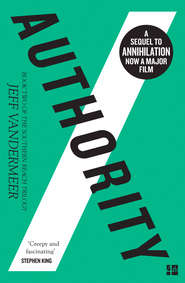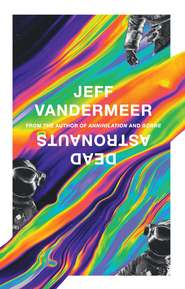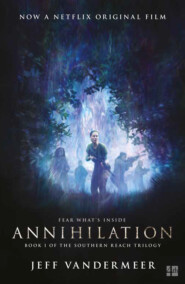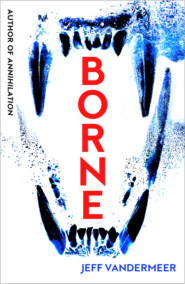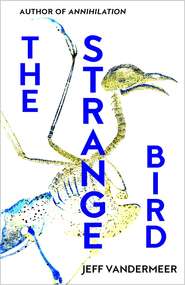По всем вопросам обращайтесь на: info@litportal.ru
(©) 2003-2024.
✖
Acceptance
Настройки чтения
Размер шрифта
Высота строк
Поля
But it was too late. He felt a sliver enter his thumb. There was no pain, only a pressure and then numbness, but he still jumped up in surprise, yowling and waving his hand back and forth. He frantically tore off the glove, examined his thumb. Aware that Gloria was watching him, not sure what to make of him.
Nothing now glittered on the ground in front of him. No light at the base of the plant. No pain in his thumb.
Slowly, Saul relaxed. Nothing throbbed in his thumb. There was no entry point, no puncture. He picked up the glove, checked it, couldn’t find a tear.
“What’s wrong?” Gloria asked. “Did you get stung?”
“I don’t know,” he said.
He felt other eyes upon him then, turned, and there stood Henry. How had he gotten down the stairs so fast? Had more time passed than he’d imagined?
“Yes—is something wrong, Saul?” Henry asked, but Saul could find no way to reconcile the concern expressed with any concern in the tone of his voice. Because there was none. Only a peculiar eagerness.
“Nothing is wrong,” he said, uneasy but not knowing why he should be. “Just pricked my thumb.”
“Through your gloves? That must have been quite the thorn.” Henry was scanning the ground like someone who had lost a favorite watch or a wallet full of money.
“I’m fine, Henry. Don’t worry about me.” Angry more at looking silly over nothing, but also wanting Henry to believe him. “Maybe it was an electric shock.”
“Maybe …” The gleam of the man’s eyes was the light of a cold beacon coming to Saul from far off, as if Henry were broadcasting some other message entirely.
“Nothing is wrong,” Saul said again.
Nothing was wrong.
Was it?
0002: GHOST BIRD (#ulink_e8781a39-d38d-52c2-bc3d-9da45b19a190)
On the third day in Area X, with Control as her sullen companion, Ghost Bird found a skeleton in the reeds. It was winter in Area X now, and this had become more apparent once the trail meandered away from the sea that had been their entry point. The wind was cold and pushed against their faces, their jackets, the sky a watchful gray-blue that held back some essential secret. The alligators and the otters and the muskrats had retreated into the mud, ghosts somewhere beneath the dull slap and gurgle of water.
Far above, where the sky became a deeper blue, she caught a hint of some reflective surface, identified it as a wheeling cone of storks, the sun glinting silver from their white-and-gray feathers as they spun up into the sky at a great distance and with a stern authority, headed … where? She could not tell if they were testing the confines of their prison, able to recognize that invisible border before they crossed it, or like every other trapped thing here, simply operating on half-remembered instinct.
She stopped walking, and Control stopped with her. A man with prominent cheekbones, large eyes, an unobtrusive nose, and light brown skin. He was dressed in jeans and a red flannel shirt, along with a black jacket and a brand of boots that wouldn’t have been her first choice for walking through the wilderness. The director of the Southern Reach. The man who had been her interrogator. An athlete’s build, perhaps, but as long as they’d been in Area X, he’d been stooped over, muttering, as he examined forever and always a few water-stained, wrinkled pages he’d saved from some useless Southern Reach report. Flotsam from the old world.
He barely noticed the interruption.
“What is it?” he asked.
“Birds.”
“Birds?” As if the word was foreign to him, or held no meaning. Or significance. But who knew what held significance here.
“Yes. Birds.” Further specificity might be lost on him.
She took up her binoculars, watched the way the storks turned this way and then that way but never lost their form: a kind of living, gliding vortex in the sky. The pattern reminded her of the circling school of fish into which they’d emerged in shock, their surprising entrance into Area X from the bottom of the ocean.
Staring down at her, did the storks recognize what they saw? Were they reporting back to someone or something? Two nights running, she had sensed animals gathering at the edge of their campfire, dull and remote sensors for Area X. Control wanted more urgency, as if a destination meant something, while she wanted more data.
There had already been some misunderstandings about their relationship since reaching the beach—especially about who was in charge—and in the aftermath he’d taken back his name, asked that she call him Control again rather than John, which she respected. Some animals’ shells were vital to their survival. Some animals couldn’t live for long without them.
His disorientation wasn’t helped by a fever and a sense, from her own accounts of “a brightness,” that he too was being assimilated and might soon be something not himself. So perhaps she understood why he buried himself in what he called “my terroir pages,” why he had lied about wanting to find solutions when it was so clear to her that he just needed something familiar to hold on to.
At one point on the first day, she had asked him, “What would I be to you back in the world—you at one of your old jobs, me at my old job?” He had not had an answer, but she thought she knew: She would be a suspect, an enemy of the right and the true. So what were they to each other here? Sometime soon she would have to force a real conversation, provoke conflict.
But for now, she was more interested in something off in the reeds to their left. A flash of orange? Like a flag?
She must have stiffened, or something in her demeanor gave her away, because Control asked, “What’s wrong? Is something wrong?”
“Nothing, probably,” she said.
After a moment, she found the orange again—a scrap, a tattered rag tied to a reed, bending back and forth in the wind. About three hundred feet out in the reed-ocean, that treacherous marsh of sucking mud. There seemed to be a shadow or depression just beyond it, the reeds giving way to something that couldn’t be seen from their vantage.
She loaned him the binoculars. “See it?”
“Yes. It’s a … a surveyor’s mark,” he said, unimpressed.
“Because that’s likely,” she said, then regretted it.
“Okay. Then it’s ‘like’ a surveyor’s mark.” He handed back the binoculars. “We should stay on the trail, get to the island.” A sincere utterance of island for once, proportional to his dislike of the unspoken idea that they investigate the rag.
“You can stay here,” she said, knowing he wouldn’t. Knowing she would have preferred he remain behind so she could be alone in Area X for a few moments.
Except: Was anyone ever truly alone out here?
For a long time after she had woken in the empty lot, then been taken to the Southern Reach for processing, Ghost Bird had thought she was dead, that she was in purgatory, even though she didn’t believe in an afterlife. This feeling hadn’t abated even when she’d figured out that she had come back across the border into the real world by unknown means … that she wasn’t even the original biologist from the twelfth expedition but a copy.
She had admitted as much to Control during the interrogation sessions: “It was quiet and so empty … I waited there, afraid to leave, afraid there might be some reason I was meant to be there.”
But this didn’t encompass the full arc of her thoughts, of her analysis. There was not just the question of whether she was really alive but, if so, who she was, made oblique by her seclusion in her quarters at the Southern Reach. Then, examining the sense that her memories were not her own, that they came to her secondhand and that she could not be sure whether this was because of some experiment by the Southern Reach or an effect caused by Area X. Even through the intricacies of her escape on the way to Central, there was a sense of projection, of it happening to someone else, that she was only the interim solution, and perhaps that distance had aided her in avoiding capture, added a layer of absolute calm to her actions. When she’d reached the remote Rock Bay, so familiar to the biologist who had been there before her, she’d had peace for a while, let the landscape subsume her in a different way—let it break her down so she could be built up again.
But only when they had burst through into Area X had she truly gained the upper hand on her unease, her purposelessness. She had panicked for a second as the water pressed in on her, surrounded her, evoked her own drowning. But then something had turned on, or had come back, and raging against her own death, she had exulted in the sensation of the sea, welcomed having to fight her way to the surface—bursting through such a joyful hysteria of biomass—as a sort of proof that she was not the biologist, that she was some new thing that could, wanting to survive, cast out her fear of drowning as belonging to another.
In the aftermath, even resuscitating Control on the beach had seemed undeniable proof of her own sovereignty. As had her insistence on heading for the island, not the lighthouse. “Wherever the biologist would have gone, that is where I will go.” The truth, the rightness, in that had given her hope, despite the sense that everything she remembered she had observed through a window opening onto another person’s life. Not truly experienced. Or not experienced yet. “You want a lived-in life because you don’t have one,” Control had said to her, but that was a crude way to put it.
There had been little new to experience since. Nothing monstrous or unusual had yet erupted from the horizon in almost three full days of walking. Nothing unnatural, except for this hyperreal aspect to the landscape, these processes working beneath the surface. At dusk, sometimes, too, an image of the biologist’s starfish came to her, dimly shining, like a compass in her head that drew her on, and she realized again that Control couldn’t feel what she felt here. He couldn’t navigate the dangers, recognize the opportunities. The brightness had left her, but something else had stepped in to replace it.
“Counter-shading,” she’d said when he’d confessed his confusion that Area X looked so normal. “You can know a thing and not know a thing. A grebe’s markings from above are obvious. You cannot miss a grebe from above. Seen from below, though, as it floats in the water, it is practically invisible.”
“Grebe?”
“A bird.” Another bird.
“All of this is a disguise?” He said it with a kind of disbelief, as if the reality were strange enough.
Ghost Bird had relented, because it wasn’t his fault. “You’ve never walked through an ecosystem that wasn’t compromised or dysfunctional, have you? You may think you have, but you haven’t. So you might mistake what’s right for what’s wrong anyway.”
That might not be true, but she wanted to hold on to the idea of authority—didn’t want another argument about their destination. Insisting on heading for the island was protecting not just her life but his, too, she believed. She had no interest in last chances, last desperate charges into the guns of the enemy, and something in Control’s affect made her believe he might be working toward that kind of solution. Whereas she was not yet committed to anything other than wanting to know—herself and Area X.






